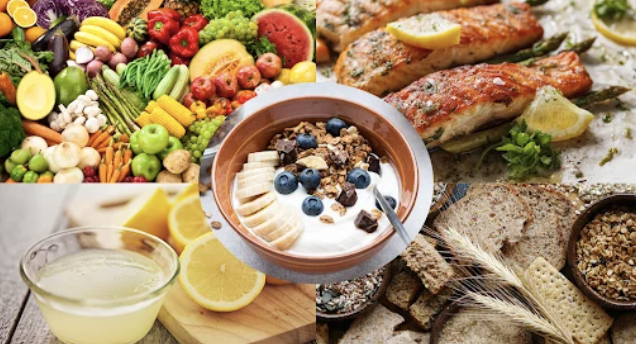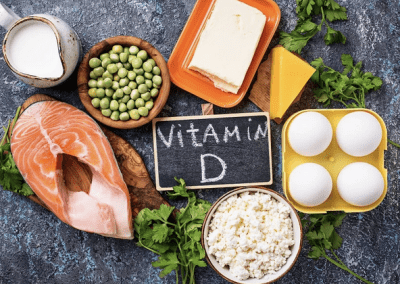National Stroke Awareness Month is observed every May as an opportunity to educate and inform about stroke signs, symptoms and treatment. Strokes are the fifth leading cause of death and a significant cause of disability in the United States. Every 40 seconds, someone in the United States has a stroke.
A stroke can be a life-changing event, but there are steps you can take to reduce the likelihood of having one. Living a healthy lifestyle filled with good habits and a healthy diet can significantly reduce the risk of stroke. In fact, many of the same healthy habits that you can practice to prevent strokes are the same habits that reduce the risk factors of heart disease, diabetes and dementia.
In honor of National Stroke Awareness Month, we’ve put together a list of some of the best foods you can eat to reduce your risk of strokes. Following these heart-healthy dietary tips will help you feel great, age well, and improve your health for years to come. As always, please consult with your physician before making any significant changes to your diet.
1. Fruits and vegetables
The American Heart Association states that eating a plant-based, meatless meal a few times a week can help control cholesterol levels and improve overall health. Packing your plate with fruits and vegetables also helps maintain a healthy weight, improve brain function, and reduce your risk of a stroke. Fruits and vegetables are filled with fiber, nutrients, antioxidants, and beneficial vitamins such as potassium, vitamins A and C, and folate.
Foods high in potassium help maintain a healthy blood pressure, which is the leading risk factor for developing a stroke. Foods rich in magnesium have also been proven to reduce your risk of a stroke. Aim for four to five servings of fruits and vegetables each day for optimum health results. An easy way to do this is by throwing a handful of leafy vegetables into your morning smoothie, subbing a side salad for chips or fries, and snacking on an apple or pear when you’re feeling peckish.
2. Lemon juice
Lemon juice adds a bright zing to sauces, dressings and dishes, but did you know that it also can help prevent strokes? According to a 2012 study, individuals who consumed citrus juice and fruits had a 19% lower risk of developing strokes. It’s believed that the flavonoids found in citrus fruits like lemons, limes and oranges can prevent inflammation. This helps improve the health of blood vessels and your brain, both of which are factors in stroke prevention.
It’s easy to add lemon juice into your current diet. Squeeze a slice of fresh lemon or lime into your water, or swap some oil out for lemon juice when making salads and other side dishes. Finally, since we’re approaching warmer weather, whip up a batch of homemade lemonade using freshly squeezed lemon juice (just make sure to go easy on the sugar).
Helpful hint: if the thought of lemon juice has your lips puckering, Meyer lemons are sweeter than regular grocery store lemons and have the same health benefits. They are believed to be a cross between a regular lemon and a mandarin orange.
3. Fish
Omega-3 fatty acids have a plethora of health benefits: They’ve been proven to help prevent heart disease and stroke and potentially reduce the risks of certain cancers and other conditions such as rheumatoid arthritis. While omega-3 can be found in nuts, seeds, and certain animal fats, the best source of omega-3 is found in fish.
Salmon, mackerel, trout, tuna, and other oily fish are all high in omega-3. Eating two to three servings of oily fish per week can boost heart health and lower the risk of strokes. Besides swapping a steak for salmon or tuna for chicken, here are some other ways you can easily add omega-3 into your diet (especially if you don’t like fish):
- Sprinkle flax, wheat germ or chia seeds into your morning yogurt or bowl of cereal
- Munch on walnuts or edamame as a snack
- Swap out vegetable oil for soybean oil when cooking
- Choose grass-fed beef over traditional beef
4. Whole grain foods to prevent strokes
Whole grains are rich with fiber, vitamins (especially B vitamins like thiamin and folate), iron, and magnesium. If you have high cholesterol, one of the quickest and easiest ways to improve your health is to swap out white and refined grains with whole grains.
These days, it’s easier than ever to choose whole grains over refined grains. Many manufacturers have fortified versions of favorite foods (like Wonder Bread) that use whole grains without sacrificing taste. Of course, naturally occurring whole grains are the best choice, so whenever possible, opt for those. Here are some easy ways to get more whole grains in our diet:
- Swap out brown rice for white rice
- Choose oatmeal over a bowl of sugary breakfast cereal
- Choose whole-grain bread options (especially those where you can actually see the whole grains in the bread slices)
- Snack on air-popped popcorn instead of potato chips
- Use whole-grain bread crumbs instead of refined to bulk up meatloaf, meatballs and poultry
- Broaden your palate with whole-grain choices, including wild rice, bulgur and barley
5. Low-fat dairy
Dairy is chock-full of calcium, vitamin D, protein and potassium. However, full-fat dairy products are filled with saturated fats that can increase your risk of stroke and cause high blood pressure, so be sure to choose lower-fat or no-fat options. Fortunately, these options are easy to find in the grocery aisle and taste just as good as the full-fat options. To get more dairy into your diet, swap mayonnaise for Greek yogurt, add a handful of shredded cheese to salads, or top fruit salads with sweetened yogurt.
Discover a heart-healthy lifestyle at Sedgebrook.
At Sedgebrook, we’re focused on helping our residents live life to the fullest. Our full continuum of care and health care services enable our residents to receive the support and health they need so they can enjoy the retirement they deserve. And, of course, our delicious dining options provide high-quality meals that keep our residents healthy, happy and vibrant.
Contact us at 847-496-3351 to schedule a delicious and healthy lunch as well as a tour of our community.




